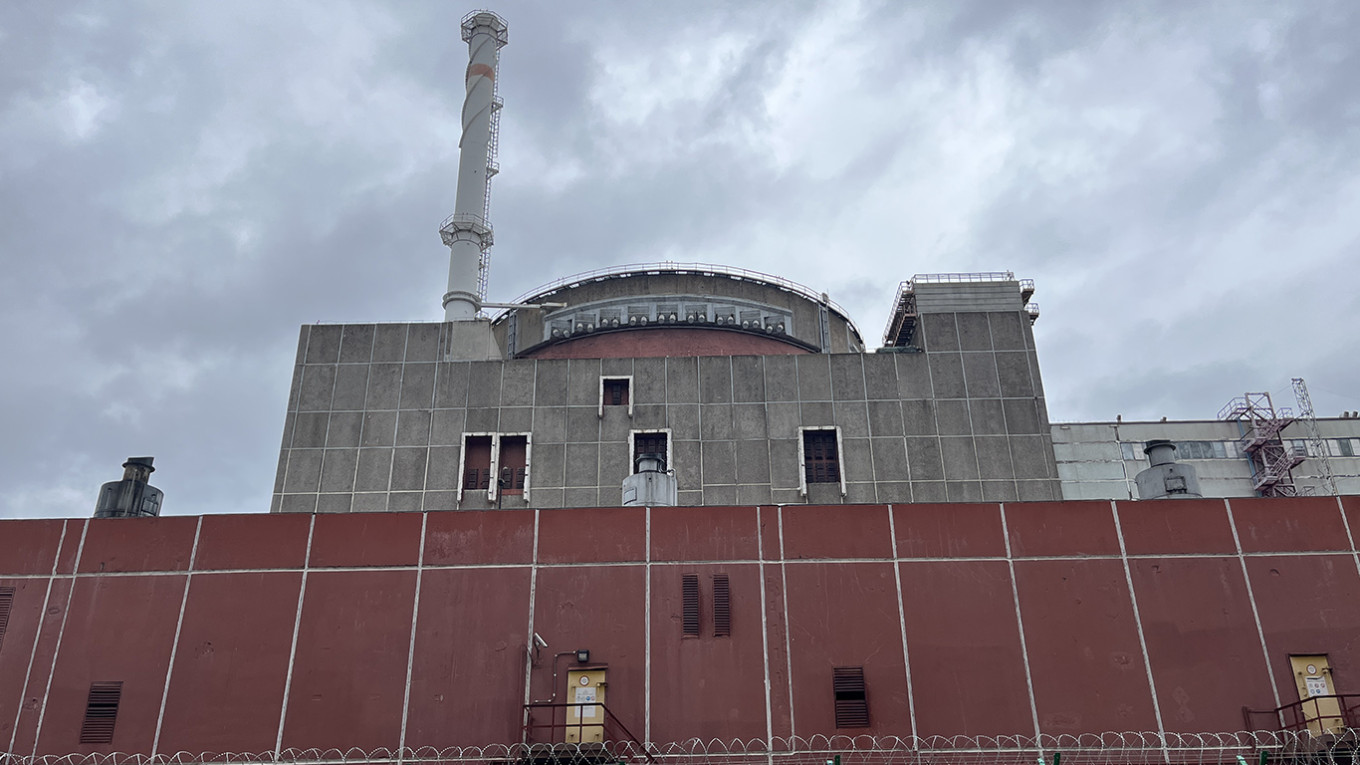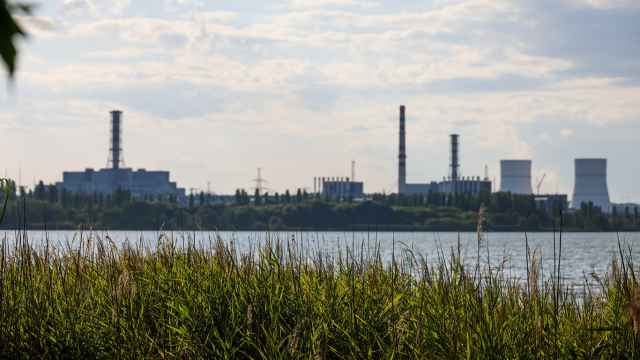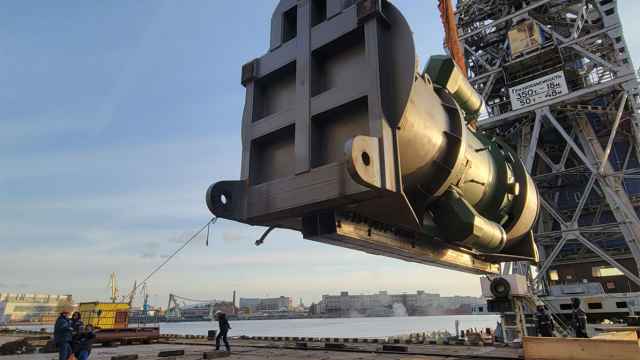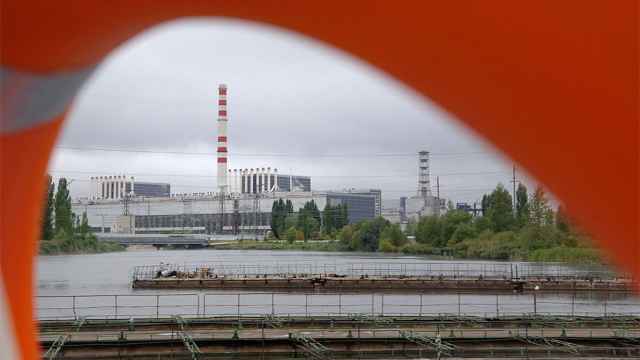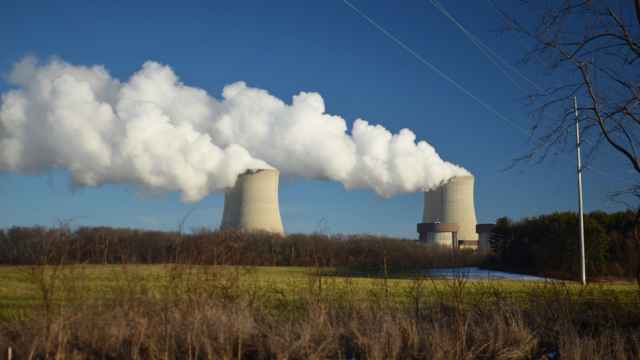What could have prevented the seizure of the Zaporizhzhia nuclear plant – Europe’s largest such facility – and its continued embattlement as an effective hostage of Russia’s invasion of Ukraine? Overwhelmed by Moscow’s forces early in the war, the plant’s six Soviet-built reactors and stores of spent nuclear fuel have now been forced to the front lines of the largest conflict on European soil since World War II. There seems to be nothing that the international community can do about it.
Awkwardly tasked with overseeing this fragile situation is the UN’s International Atomic Energy Agency (IAEA) which, like numerous other international bodies, was caught flat-footed when Russian forces rolled not only into the Zaporizhzhia plant, but the Chernobyl exclusion zone – acts barely conceived of within the framework of international norms governing nuclear power use.
The invasion has thus thrust the IAEA to the forefront of negotiations concerning nuclear safety at the Zaporizhzhia plant. Its director general, Rafael Grossi, forced to tread a mosaic of eggshells as he seeks to elicit assurances from Moscow and Kyiv not to cause a major nuclear accident as the fighting drags on.
While the IAEA has been intermittently successful in its attempts to provide a public-facing front for concern about conditions at the Zaporizhzhia plant, its existence alone is not sufficient to prevent attacks on civilian nuclear facilities. Because of this, we at Bellona argue in our new report that the international community must work to reform our common nuclear security policies to protect civilian atomic facilities from becoming the spoils of –or weapons in – international conflicts.
As it stands, the IAEA is both enabled and constrained by its diplomatic foundations. Its aegis as a UN agency gives it access to negotiations with high-level officials in both Moscow and Kyiv. It has thus been allowed by Russian authorities to place observers at the plant to report on safety conditions as the fighting continues to rage. But the agency’s reliance on the support and consent of its 178 member states – including Russia – curtail its ability to levy criticism or conduct investigations that would implicate either of the warring parties in clear wrongdoing, much less prevent it.
Russia has used the agency’s diplomatic constraints to its advantage. It has criticized the work of the IAEA’s onsite inspectors for refusing to endorse a pro-Russian stance, while at the same time hobbling their access to important facilities within the Zaporizhzhia complex. On some occasions, they have even accused the inspectors of espionage. Ukraine meanwhile asserts that the inspectors’ reports are compromised by the restrictions imposed by Russia and that they often underreport urgent issues as a result of this tight leash.
It is also worth noting that Russia makes systemic, functional, and financial contributions to the operations of the IAEA, which Putin’s regime tries to use to shield itself from explicit criticism
To be sure, Grossi has garnered support among the UN Security Council for the IAEA’s Seven Pillars of Nuclear Safety and Five Principles for the Safety of the Zaporizhzhia Nuclear Power Plant (ZNPP). But the agency’s defanged status and Grossi’s subsequent understanding of its role as almost purely a technical support organization allow it to do little but shout from the sidelines that these principles, again and again, are being violated as the Zaporizhzhia plant seizure continues.
The IAEA’s current disposition tends to spare countries like Russia from the consequences of its actions that create significant nuclear and radiation risks. This tendency is by no means unique to the IAEA, but nonetheless reflects the UN system as a whole, which, by granting certain nations veto powers within the Security Council and the General Assembly, assures that those nations are often permitted to break rules others are forced to follow without fear of repercussions.
There is a central tension within the IAEA’s structure, which may prevent it from being an effective and authoritative safety mechanism: the agency is meant to promote the use of nuclear power while also overseeing its security. This conflict can prevent the agency from holding states to account for creating nuclear risks.
We therefore suggest that one way of providing the IAEA with the authority to hold malicious actors responsible for deliberately creating such risks could be to divide it into two agencies – one overseeing the promotion of nuclear science and power, the other overseeing its safe maintenance and development.
Naturally, any impetus for such or any reform would have to emerge from within the international community, which must do better. The question is how. We need to start that conversation.
A Message from The Moscow Times:
Dear readers,
We are facing unprecedented challenges. Russia's Prosecutor General's Office has designated The Moscow Times as an "undesirable" organization, criminalizing our work and putting our staff at risk of prosecution. This follows our earlier unjust labeling as a "foreign agent."
These actions are direct attempts to silence independent journalism in Russia. The authorities claim our work "discredits the decisions of the Russian leadership." We see things differently: we strive to provide accurate, unbiased reporting on Russia.
We, the journalists of The Moscow Times, refuse to be silenced. But to continue our work, we need your help.
Your support, no matter how small, makes a world of difference. If you can, please support us monthly starting from just $2. It's quick to set up, and every contribution makes a significant impact.
By supporting The Moscow Times, you're defending open, independent journalism in the face of repression. Thank you for standing with us.
Remind me later.


